To honor Women's History Month, students, current faculty members, and alumni share what first interested them in mechanical engineering, advice to younger students, favorite parts about being a Lehigh engineer and what Women's History Month means to them. Please join us in celebrating these women.
Name: Disha Kamale (she/her/hers)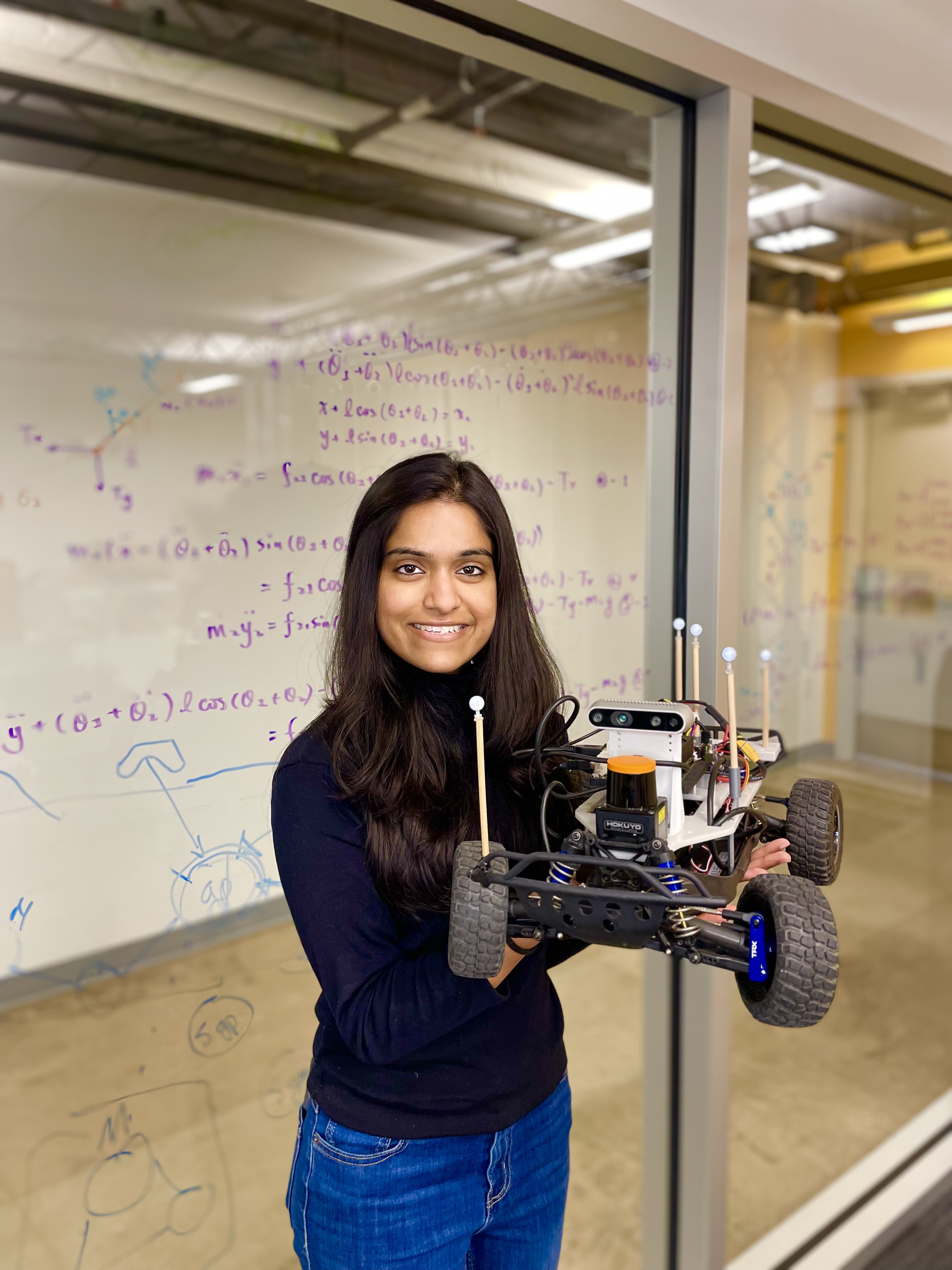
Degree(s): B.Tech. in Mechanical Engineering, Visvesvaraya National Institute of Technology(VNIT), India, 2015-2019
Where are you from and where do you currently reside?
I was born in a small town in India where I finished my schooling and later on shifted to Mumbai. Currently, I am residing in Bethlehem, PA.
What is your current professional position?
I am a Research Assistant at the Autonomous and Intelligent Robotics Laboratory, Lehigh University. I am pursuing a Ph.D. in Mechanical Engineering under the guidance of Dr. Cristian-Ioan Vasile.
How did you first get interested in mechanical engineering?
Along with problem solving, I loved Physics, especially mechanics. Moreover, I had been fascinated by aerospace; everything that went into making a structure fly got me fascinated for quite some time during my high school years. So I decided to pursue a bachelors in Mechanical Engineering. Later on, my inclination shifted towards robotics and after working as a visiting research intern at robotics labs at universities in Italy and the UK, I decided to pursue a Ph.D. in robotics.
Tell us about your experience as a STEM professional. What accomplishment(s) are you most proud of and what do you hope to accomplish in the future?
As a sophomore, I had participated in an Innovation Challenge (TIIIC) for which we had to propose and build a prototype that has a direct social impact. For this, our team proposed building a blind assistive device that detects obstacles and gives an audio warning after recognizing a limited number of objects. I thoroughly enjoyed all phases of building the prototype, from CAD design to implementation of object recognition algorithms. After building the first iteration, we visited a school for visually impaired people to get some feedback from the end-users. The students from that rural school were beyond happy to learn that something like this is even possible. It was the first time I learned that even one small idea, one seemingly small innovation can make a huge difference in someone's life. Our team eventually had to stop at the quarter-finals, but this experience of reaching out to people and seeing the direct impact of that project is one of the experiences that I am most proud and feel grateful to be part of.
One of the foremost future accomplishments I am looking forward to is growing as a researcher and establishing myself in the field of robotics. The ultimate joy of working on smaller ideas in hope of solving larger problems is immense, and I hope to improve at it, bit by bit, every day.
What advice would you give your younger self?
Keep reading, exploring, and asking questions. Also, no matter how involved and intimidating challenges might seem, there is always a way out. Find a way to do it, sometimes alone, sometimes by seeking help. Believe in your dreams and passion without giving in to the “what if” questions. At times, there might not be tangible outcomes, but keep working hard nevertheless, because it is with all those infinitesimal improvements that bigger results take shape over time.
What does women’s history month mean to you?
I look at this month as a stride in the direction that welcomes and recognizes women both professionally and socially. I graduated in Mechanical Engineering in 2019 where the boys to girls ratio was 50:1. I and my parents have been asked several times as to why I have chosen Mechanical Engineering "despite being a girl," which I defended as well as I could depending on my understanding at those times. However, I am eagerly looking forward to the time when this question does not even come up anymore. My dream is to see a world where everybody gets to do what they are passionate about regardless of their gender. A world where there are no "hidden figures" anymore. I believe that celebrating and understanding the philosophy behind this month takes us a step closer to it. It's a learning opportunity for all of us that when we look at the bigger picture, creating an inclusive environment for everyone results in our mutual growth rather than depriving us of opportunities.
Name: Caleigh Cantalupo (she/her/hers)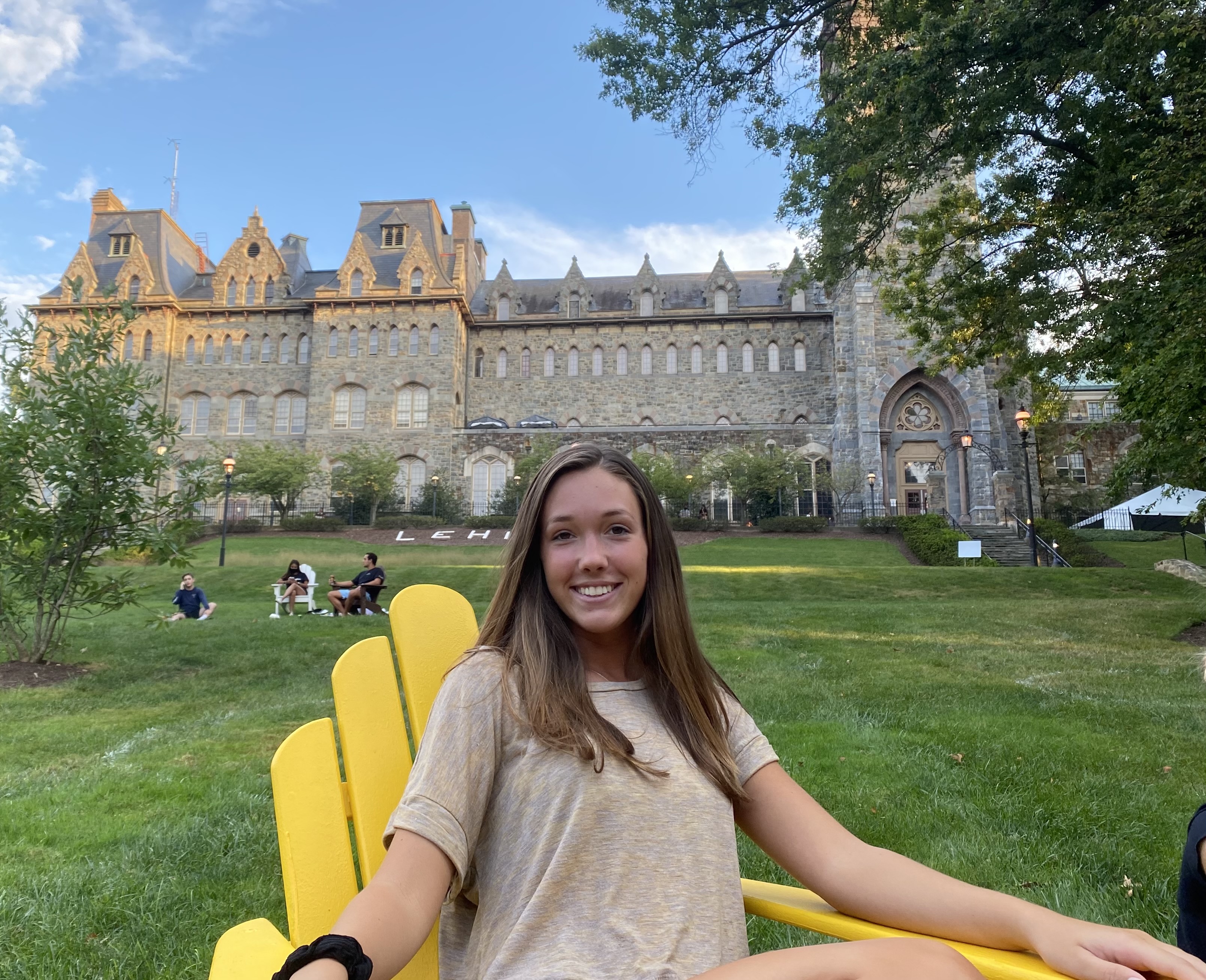
Degree(s): Lehigh University, B.S. in Mechanical Engineering, Class of 2024
Where are you from? Long Island, New York
What is your favorite part about being a Lehigh Engineer?
My favorite part about being a Lehigh engineer is the community. My first year at Lehigh was difficult because all my classes were online. This year all my classes have been in person, and a sense of community has immediately developed amongst my peers. Lehigh engineers work together as a team rather than competing with one another. It is a refreshing change to see people collaborate and build each other up rather than compete against one another. I am so thankful to be a Lehigh engineer and work alongside individuals with similar interests and intellect that can push me to be a better student and person every day.
How did you first get interested in mechanical engineering?
In high school I participated in the Engineering Awareness Program for Women and Minorities at Manhattan College during the summer before my senior year. While attending the institute for two weeks, I worked with a team of other high school students on a structural engineering project. We had to build a structure out of balsa wood sticks that could withstand a load of textbooks. My group ended up getting 1st place for our project. This accomplishment gave me the confidence to pursue engineering further. Looking back now, it was such a simple project and small victory, but it sparked my academic curiosity and inspired me to apply to engineering schools during the following fall of my senior year.
What else were you involved with at Lehigh outside of course work?
Outside of Lehigh course work, I am a part of Greek Life on campus. I am an active member in the Alpha Phi Sorority. I also am a part of the Society of Women Engineers and just recently joined the Best Buddies club. Best Buddies is a club that creates opportunities for one-on-one friendships with people with intellectual and developmental disabilities.
Tell us about any teachers or mentors who have inspired you to get where you are today:
Since my freshman year of Lehigh, Professor Haden has been my number one supporter through my academic journey. My freshman year here was fully online, and I found it very hard to develop relationships with my teachers. I had Professor Haden for Mech 003 the Spring of my freshmen year. Even online, Professor Haden created a learning environment that made students feel comfortable to ask questions and reach out for help. As a sophomore, Professor Haden is now my advisor, and I still go to her frequently for help. Whether that be a question for thermodynamics or just advice in general. I would be lying if I said that my first 2 years here have been easy. I have had an extremely difficult time making the transition from high school to college, especially during the pandemic. There have been many times where I have wanted to give up altogether and thought “maybe engineering is not for me”. Every time I have felt this way, I have gone to Professor Haden. If it was not for her constant support, I would not be the student and person that I am today.
What does women’s history month mean to you?
As a woman in engineering, this month is especially important to me. As a mechanical engineering major at Lehigh, I am a minority in every single one of my classes. I knew coming into Lehigh that women were extremely underrepresented in STEM fields across the board, however I never realized the extent that this was true. I think that now more than ever, it is extremely important to get young women interested in engineering, and to increase representation in this field. It makes me sad to think that at one time, Lehigh was an all-male engineering school. Through my academic journey, I have encountered many female teachers in high school and professors here at Lehigh that have encouraged me to pursue engineering. I am so thankful and proud to follow in their footsteps and pursue a degree in mechanical engineering, even though sometimes I feel out of place. This month is very important to me, and I hope that one day I can also encourage young women to do the same.
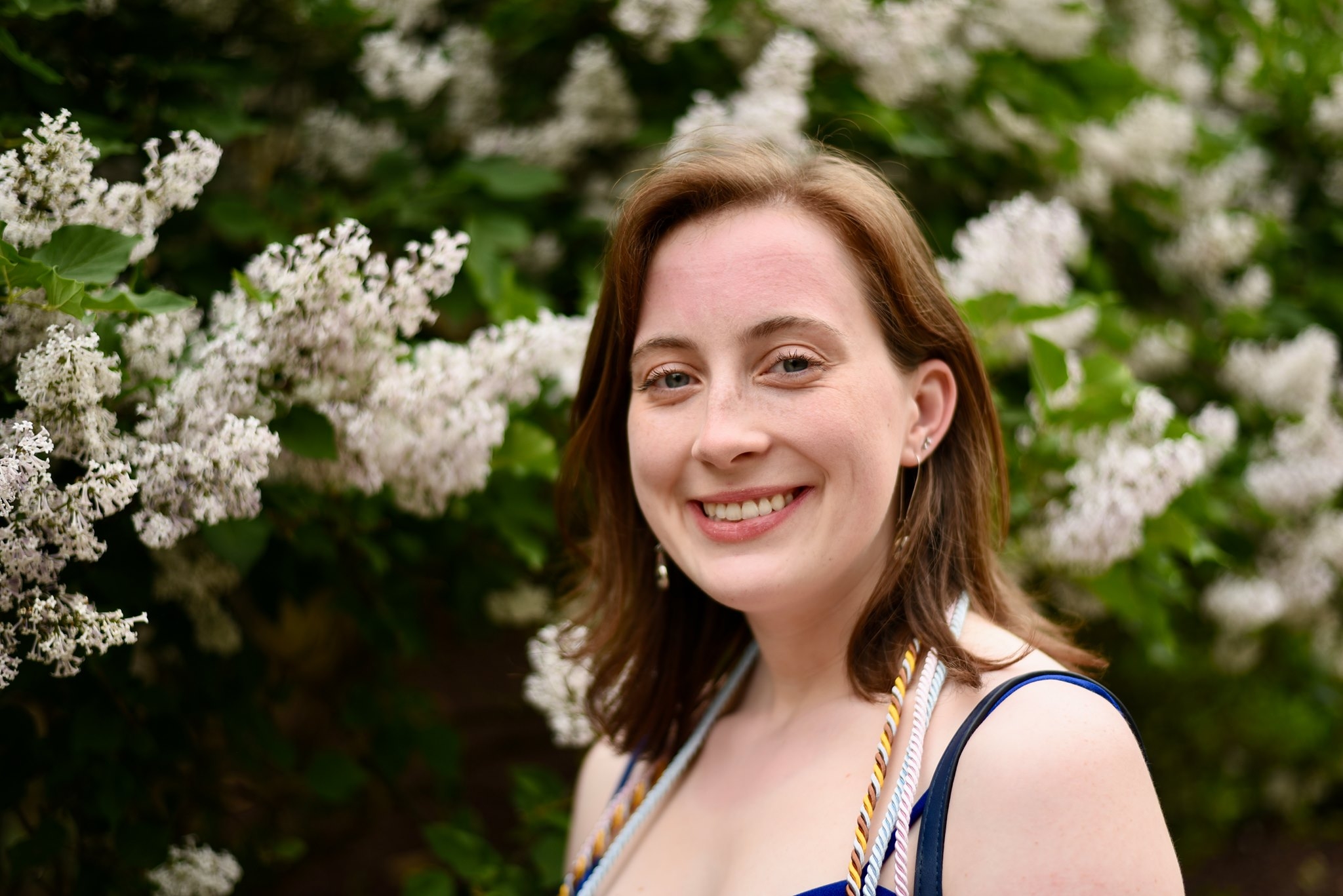 Name: Margaret Huettner (she/her/hers)
Name: Margaret Huettner (she/her/hers)
Degree(s): B.S. Mechanical Engineering with minors in German and Music ’21; M.S. Mechanical Engineering ‘22
Where are you from? Leesburg, Virginia
What is your favorite part about being a Lehigh engineer?
My favorite part of being a Lehigh engineer is the community around me. The camaraderie amongst the students has always made for a collaborative (rather than competitive) atmosphere, and it helps me feel supported when assignments or concepts are difficult. I feel a sense of pride as a Lehigh engineer, and I am also proud to be one of the active members working towards improving our school for future students.
How did you first get interested in mechanical engineering?
My family really inspired me to pursue engineering. My father is an electrical engineer (Lehigh class of '80), and I have an uncle, cousins, and grandparents who are/were engineers as well. I thought engineering would be a great way to utilize my strengths in math, science, and communication, and mechanical engineering has such a broad and meaningful impact on the world. I knew I couldn't go wrong with an engineering degree and was up for the challenge.
What else are you involved with at Lehigh outside of course work?
At Lehigh I have been involved with several music ensembles including the Marching 97, Jazz Orchestra, and jazz combos, playing piano and saxophone. I co-founded a saxophone quartet as a freshman and performed with them throughout my time as an undergrad. Furthermore, I led the Marching 97 as the Drum Major in 2019 and 2020, conducting the band at each of the football games. As a graduate student, I am now on the WiSE (Women in Science and Engineering) executive board and co-lead the mentorship group for women and gender non-conforming people in mechanical engineering.
Tell us about any teachers or mentors who have inspired you to get where you are today.
Prof. Haden and Prof. Dailey have been inspirations to me both in the classroom and out. They show a genuine care and concern for their students and they do everything in their power to help their students be strong advocates for themselves. At times they have both challenged me and comforted me, and they make a huge difference in the Lehigh mechanical engineering environment and atmosphere.
What does Women’s History Month mean to you?
I plan to work in the energy industry on energy efficiency, energy-from-waste, renewable energy, etc. I want a career that allows me to perform technical work while also growing as a leader. It can be discouraging being the only woman in the classroom or on a project team, but this month inspires me to continue excelling and proving myself as a woman in engineering. I think shining a spotlight on women and underrepresented engineers is beneficial all around. It shows young girls that they are represented in engineering and STEM, it encourages those of us that are currently studying engineering or working in industry, and it shows men how to be strong allies and support the women in their lives.
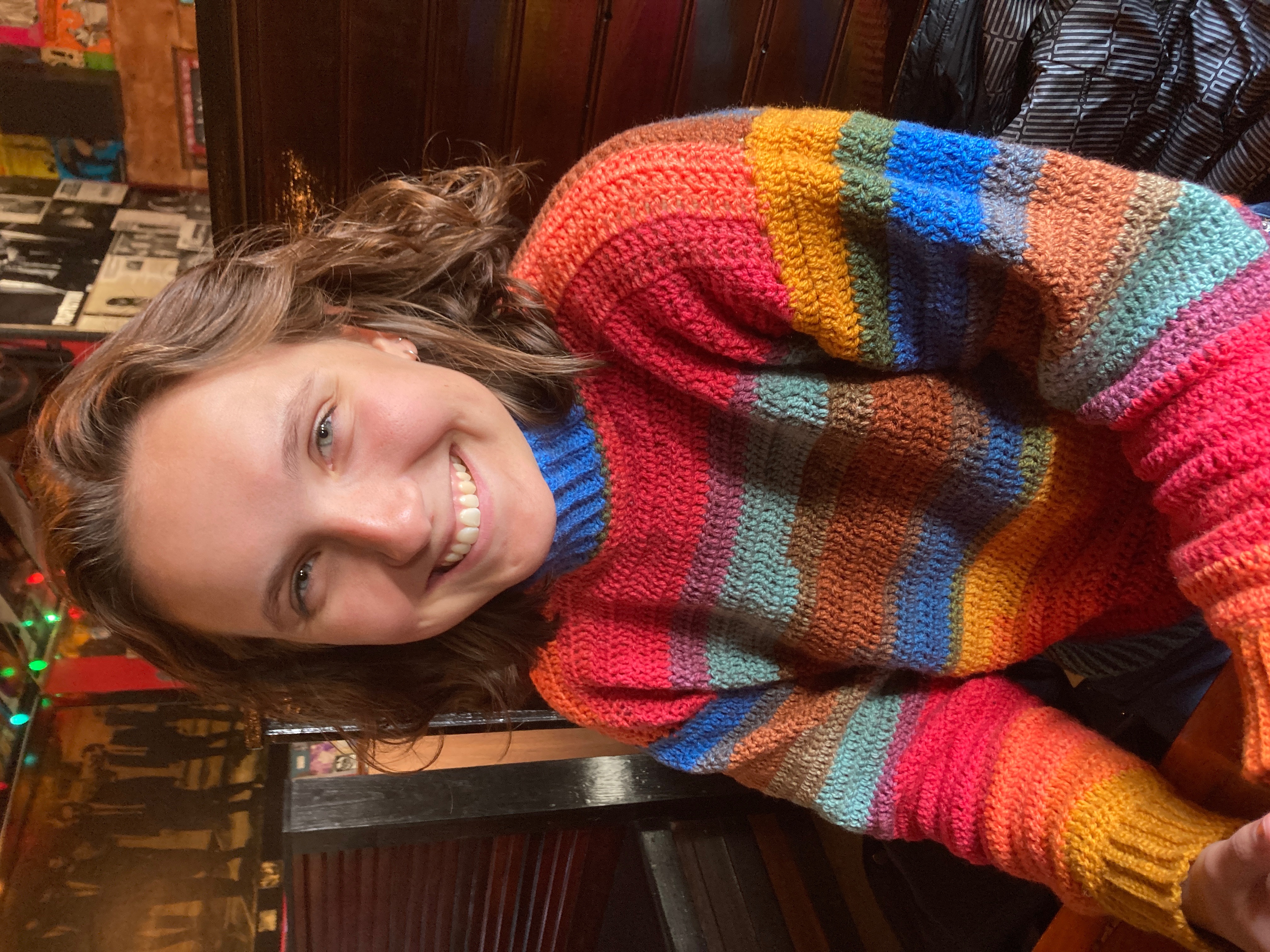
Education: BS in Mechanical Engineering with Spanish Minor, class of 2022
Where are you from? Newtown, CT
What is your favorite part about being a Lehigh engineer?
My favorite part about being a Lehigh engineer is the community that comes with my major. I have met many of my friends through my classes, and everyone regardless of knowing each other is always ready to help one another. It means a lot to me to be able to turn to another classmate and ask a question in class and know that they care enough to help me with whatever my concern is. There are also so many mentorships and clubs dedicated to engineering that have influenced my time as a Lehigh engineer, and I cherish the relationships I've created through them.
How did you first get interested in mechanical engineering?
I loved physics in high school. I took honors physics my junior year and then AP physics C because I couldn't get enough of it. I loved the way it explained everything I'd already experienced in my life, and I was able to understand the way the world works through my understanding of physics. What I loved most was the applications of kinematics that we would work through. When considering my major at my arrival to college, I came in with this love of applying what I know to learn more about how things move and function. I wanted to do more of the hands-on portion of physics, which led me to mechanical engineering.
What else are you involved with at Lehigh outside of course work?
I like to think I've really embraced the Lehigh experience and become involved in many different things here at Lehigh. I'm mainly involved in the Women's Club Ultimate Frisbee team as well as Swing Dance club among a few others. I am a Peer Tutor for a mechanical engineering course, and a Rossin Junior Fellow to help mentor other students. I was also an Orientation Leader for the past two years. Finally, I'm involved in two incredible mentorships, the Women in MechE Mentorship and the Iris Mentorship through the Pride Center, where I've met some of the most supportive people in my life.
Tell us about any teachers or mentors who have inspired you to get where you are today.
Professor Haden has been such a cheerleader for me all the way since freshman year. I was in her class for MECH 003 during the fateful semester that first got sent online due to COVID-19. Though I only had half of a semester in person with her, it was apparently plenty for her to see the best in me. After that class ended, I was lucky enough to get Professor Haden as my academic advisor, and she encouraged me to join her mentorship program for women in mechanical engineering. Any time I felt like I was having a world-ending crisis about my schedule or my future, a quick conversation with her eased all my fears. She reminded me how hard I've worked and that everything will turn out okay. Over the years, Professor Haden has been the extra push for me to become the best version of myself here at Lehigh. She is continually recommending me for leadership roles and encouraging me even when I don't think I'm worthy. I never would have attempted to do all the things I am successful at now if it wasn't for her positivity and kindness over the past three years.
What are your plans for after graduation?
Right now, my post-graduation plans are very much up in the air. I have a general plan to travel abroad immediately following graduation for a few months up to a year, since COVID took away my ability to study abroad. I am graduating early so I am in no rush to begin working, but when I do I hope to work in the aerospace industry.
What does Women’s History Month mean to you?
As a woman in engineering, I am frequently a minority in my classes and offices. The company I worked for this past summer only had two women in their engineering building, and those two women were myself and another fellow intern. To combat this, I think representation is the most important thing. To have female engineering professors, to show younger generations that women and other minorities CAN be engineers, to be able to voice our opinions and not get our ideas shot down because of who said them. This month feels especially important as a woman in mechanical engineering because now is our time to create the representation that is needed to encourage minorities in our field.
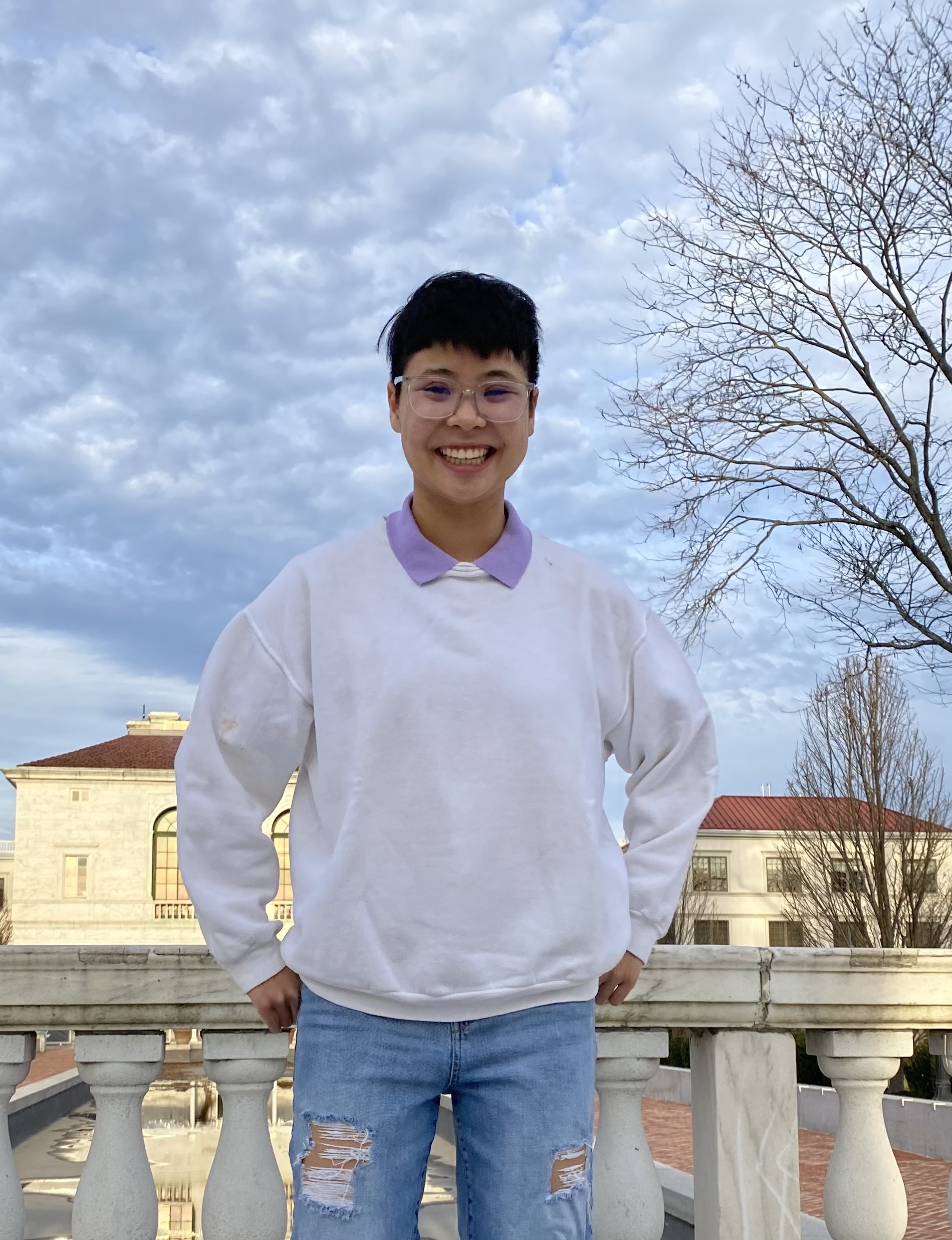 Name: Katrina Ferrante(they/them)
Name: Katrina Ferrante(they/them)
Degree(s): I am double majoring in Mechanical Engineering and Design, expected to graduate in 2025
Where are you from? I was adopted from China as a baby and grew up in Morristown, New Jersey.
What is your favorite part about being a Lehigh engineer?
My favorite thing about being a Lehigh engineer is how passionate professors are about helping their students. All the engineering professors I've had have encouraged students to come to them for help during their scheduled office hours, but also they are all willing to make time in their own busy schedules to help when it works best for you. The professors are very patient and understanding and really want to help their students truly understand the material.
How did you first get interested in mechanical engineering?
I didn't grow up around engineers so I didn't know how my interests fit into a career until I was applying to colleges. As a kid, I always had a passion for finding unconventional solutions for problems that my family and friends would have, and taking apart products to see how they worked. I remember that I would always be so excited when things would break because it was another opportunity to disassemble something and figure out exactly how it functioned. When I was exploring careers I had a sort of a-ha moment when I read about Mechanical Engineering as it fit my interests to a T. I discovered that a degree in Mechanical Engineering opens up a wide range of careers where I could practice and use my passion for problem solving and design on a daily basis.
What else are you involved with at Lehigh outside of course work?
Outside of Lehigh course work, I am a part of the Asian Cultural Society, oSTEM, a club that provides support and guidance LGBTQ+ students pursuing a career in STEM, and the Lehigh Eco-Reps, a group that promotes Sustainability on campus. I also regularly attend Lehigh's fitness classes at Taylor gym.
Tell us about any teachers or mentors who have inspired you to get where you are today.
I was inspired by one of my teachers in high school who taught me how to use digital modeling software, 3D printers, and laser cutters. Throughout my high school career, he gave me the freedom to design and build anything that I was interested in such as clocks, combination safes, and toys. This allowed me to immerse myself in model making, prototyping, and problem solving and find my passion for assembling/disassembling objects to learn how parts fit to make the whole and how products can be improved.
What does Women’s History Month mean to you?
After graduation, I plan to use my Mechanical Engineering and Design degree to working at a toy firm to work with both engineers and designers to create fun, functional products for children. As a Non-Binary, Chinese person in STEM, Women's History Month is a celebration for all minorities whose ancestors took action to create the world that we live in today. It would not have been for the contributions of those before me that allowed me to I feel proud of my identity and share it confidently with others. I am grateful for those who came before me and this month is an opportunity to celebrate that. This month is also a great opportunity to show younger kids who might relate to me or others that they can pursue what they are passionate about, no matter their identity.
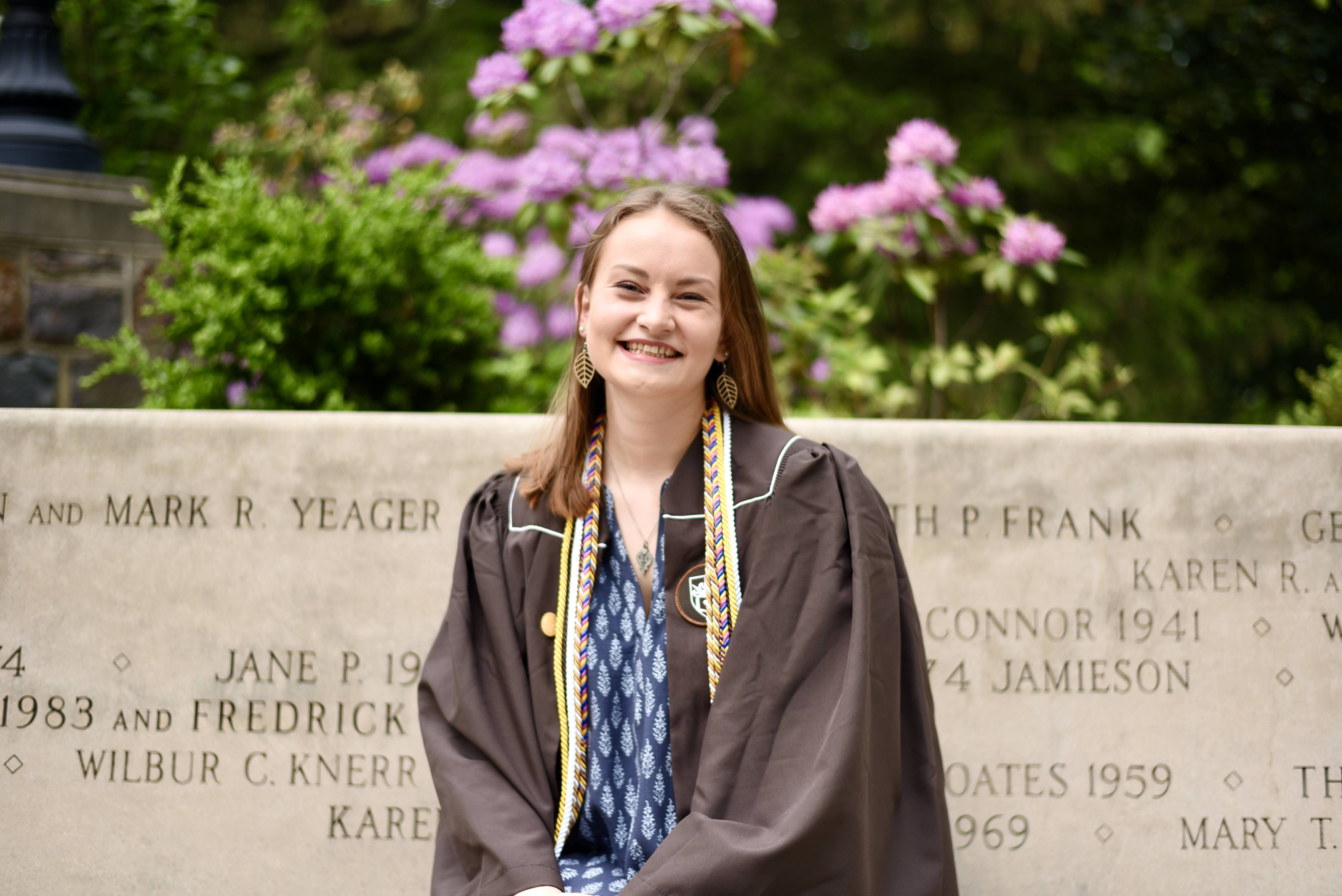
Degree(s): Lehigh University, B.S. Integrated Engineering and Humanities '21; currently an MS/PhD student at UT Austin studying acoustical engineering
Where are you from? Sherwood, OR
What is your favorite part about being a Lehigh engineer?
I remember doing homework with so many other women MechEs. Laughing and chatting while doing our homework are some of the best engineering memories I have. Although it's something so simple, the normalcy it gave me brought be a sense of belonging. That feeling was definitely a favorite.
How did you first get interested in mechanical engineering?
I decided to pursue mechanical engineering because of its connection to acoustical engineering. It kind of fell into my lap and just made sense! I took some engineering courses in high school and had a really supportive teacher and classmates. A lot of them were women and it was an exciting space. I am also a musician, which inspired my choice to pursue acoustical engineering. Sound waves behave mechanically and can be manipulated as such!
What else are you involved with at Lehigh outside of course work?
I was in the Marching 97, Wind Ensemble, SPEAK (Pride Center), Rossin Junior Fellows, Admissions Fellow & Tour Guide.
Tell us about any teachers or mentors who have inspired you to get where you are today.
Lehigh gave me so many supportive professors. Seeing their unique paths and how much they've accomplished shows me I can have the journey I want!
What does Women’s History Month mean to you?
This month is a time of reflection. I still struggle to feel like I belong in engineering. This month is a time for me to face those doubts and remember all the people who believe in me.
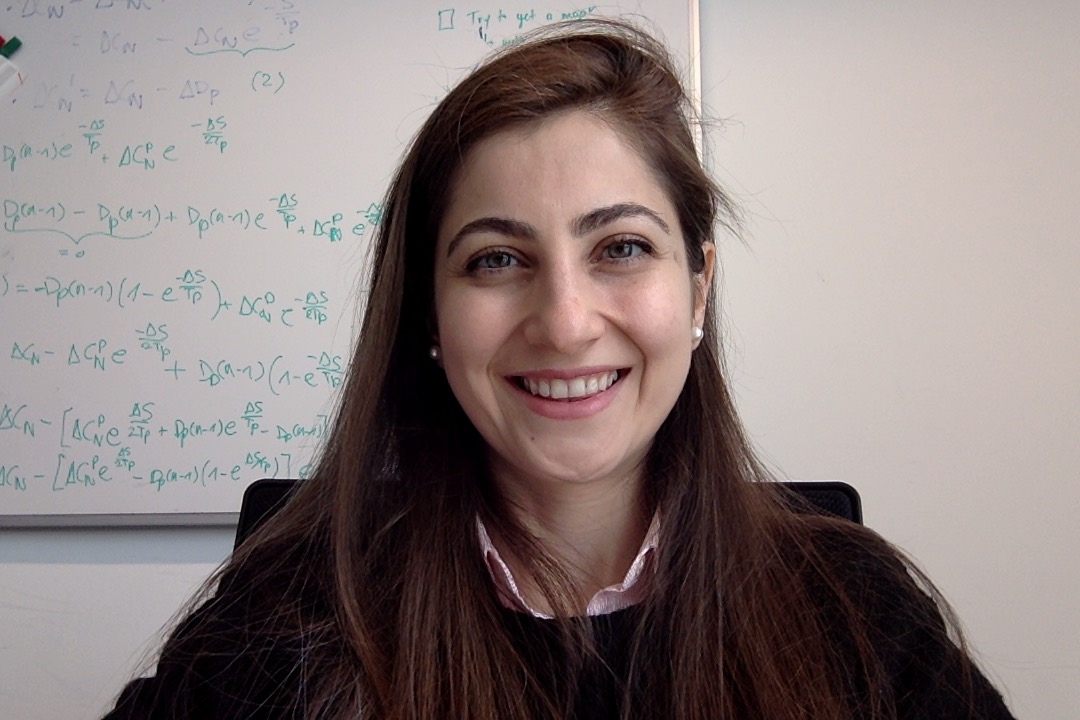 Name: Fatma Ayancik
Name: Fatma Ayancik
Education: Doctor of Philosophy, Mechanical Engineering, Lehigh University, Bethlehem, PA, USA - August 2019
Master of Science, Mechanical Engineering, TOBB ETU, Ankara, Turkey - August 2014
Bachelor of Science, Mechanical Engineering, TOBB ET ̈U, Ankara, Turkey - August 2012
Where are you from, and where do you currently reside?
I am from Ankara, Turkey and currently reside in Lausanne, Switzerland.
What is your current professional position?
I am a postdoctoral researcher at the Unsteady Flow Diagnostics Laboratory (UNFoLD) at Ecole polytechnique fédérale de Lausanne (EPFL).
How did you first get interested in mechanical engineering?
I should thank my father for that. We never called a technician or used guarantee options to fix something broken, including our car. This was our free time activity with my father. Even though we failed most of the time, he explained every detail about small appliances, cars, car engines and why we failed or succeeded in the end. Since then, I was interested in mechanical engineering, but my professor at university inspired me into my current area of mechanical engineering. During my first fluid dynamics course at university, the professor asked us to imagine vortices happening around us in the classroom. Since that day, my interest shifted towards fluid dynamics, and I found myself working with vortices during my whole career in different areas.
Tell us about your experiences as a STEM professional. What accomplishment(s) are you most proud of and what do you hope to accomplish in the future?
I studied mechanical engineering during my whole career. From the beginning of my academic career, I always identified the areas where I need to grow academically and professionally and trained myself to achieve what I wanted. My master’s degree was in hydro-energy. It included every aspect of designing, optimization, manufacturing, and testing of hydro turbine parts. During the time, I worked with both academicians and professionals from the industry. During my doctoral studies, different from my master’s, I gained expertise in unsteady and vortical flows, with more specific knowledge in unsteady bio-inspired flows. The goal of my Ph.D. project was to learn the underlying physics of efficient swimming and use my findings as a basis that will lead to novel, fast, and efficient underwater vehicle designs. I developed scaling laws to predict three-dimensional (3D) heaving and pitching foils’ performance. It became one of the few models in 3D that can elucidate the dominant flow physics behind the thrust production and energetics of bio-propulsors and provide guidance for designing bio-inspired propulsive systems. I am proud of this work because it helps to understand nature a little more and has many applications in engineering. During my Ph.D., I grew up in an inter- and multi-disciplinary group with professors who are experts in their areas, post-doctoral researchers, and doctoral students with different research backgrounds. This environment provided me a large professional and academic network, challenged me to learn about different research areas, and encouraged me to approach problems from different angles. Outside of research, as a proud Women in Science and Engineering (WiSE) club member at Lehigh, I organized two alumni panels that bring students and alumni together and four professional development series to help students who are in their early career transition from university to industry and/or academia. Based on these efforts, I was awarded the graduate life leadership award. Currently, I am a post-doctoral researcher working on dynamic stall modeling and predicting for wind turbine applications combined with the data-driven approaches at EPFL. After my postdoc, I envision myself as a future academician and hope to strengthen my capacity as a researcher in the areas I am currently working on and worked on before. Although I am currently at the beginning of my academic career, I also want to develop the organizational skills of an effective group leader, continue building a diverse network of collaborators, and help women entering my field to overcome the challenges that they will face in their career path.
What advice would you give your younger self?
There will be many steps that you need to take and bumpy roads to follow where you feel there is no end. Go for any opportunity and never think that you can’t do it, even though there are people who say the opposite. Don’t let anyone destroy your dreams. The dreams that you never tried to make real. Then, work hard and don’t forget this sentence from Dogan Cuceloglu; “If you do your best in the purity of your intention, the universe will always help you.”
What does Women’s History Month mean to you?
This month is an opportunity to recognize the efforts of women who challenged the status quo and didn't back down and show one more time to the world when women succeed, the world succeeds.
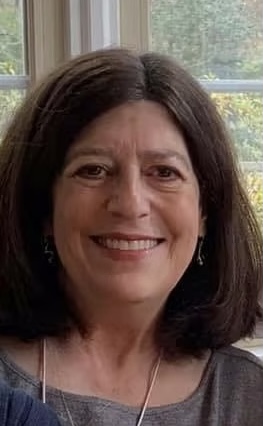 Name: Patricia Teller Beadling
Name: Patricia Teller Beadling
Education: B.S. in Mechanical Engineering, Lehigh University, 1973
Where are you from, and where do you currently reside?
I grew up in Wilkes-Barre, PA and currently live in Malvern, PA.
What is your current professional position?
I am retired from Verizon, formerly Bell Atlantic and Bell of Pennsylvania.
How did you first get interested in mechanical engineering?
I took several years of mechanical drawing (drafting) classes in high school. My teacher asked if I wanted to be the worker or the boss. When I answered, “The Boss!” he told me to get an engineering degree. Best advice ever!
Tell us about your experiences as a STEM professional. What accomplishment(s) are you most proud of and what do you hope to accomplish in the future?
Back in my early career, it was unusual to be a female engineer. I had to continually prove I could do the job, the same or better than any man. I’m proud that I continuously advanced in my career, which paved the way for other women. I’m also proud to have balanced a career and family.
What advice would you give your younger self?
Stay true to yourself and never give up on your dreams and goals.
What does Women’s History Month mean to you?
Women’s History Month recognizes that women have always contributed to our history, and are an important part of our history and our future.
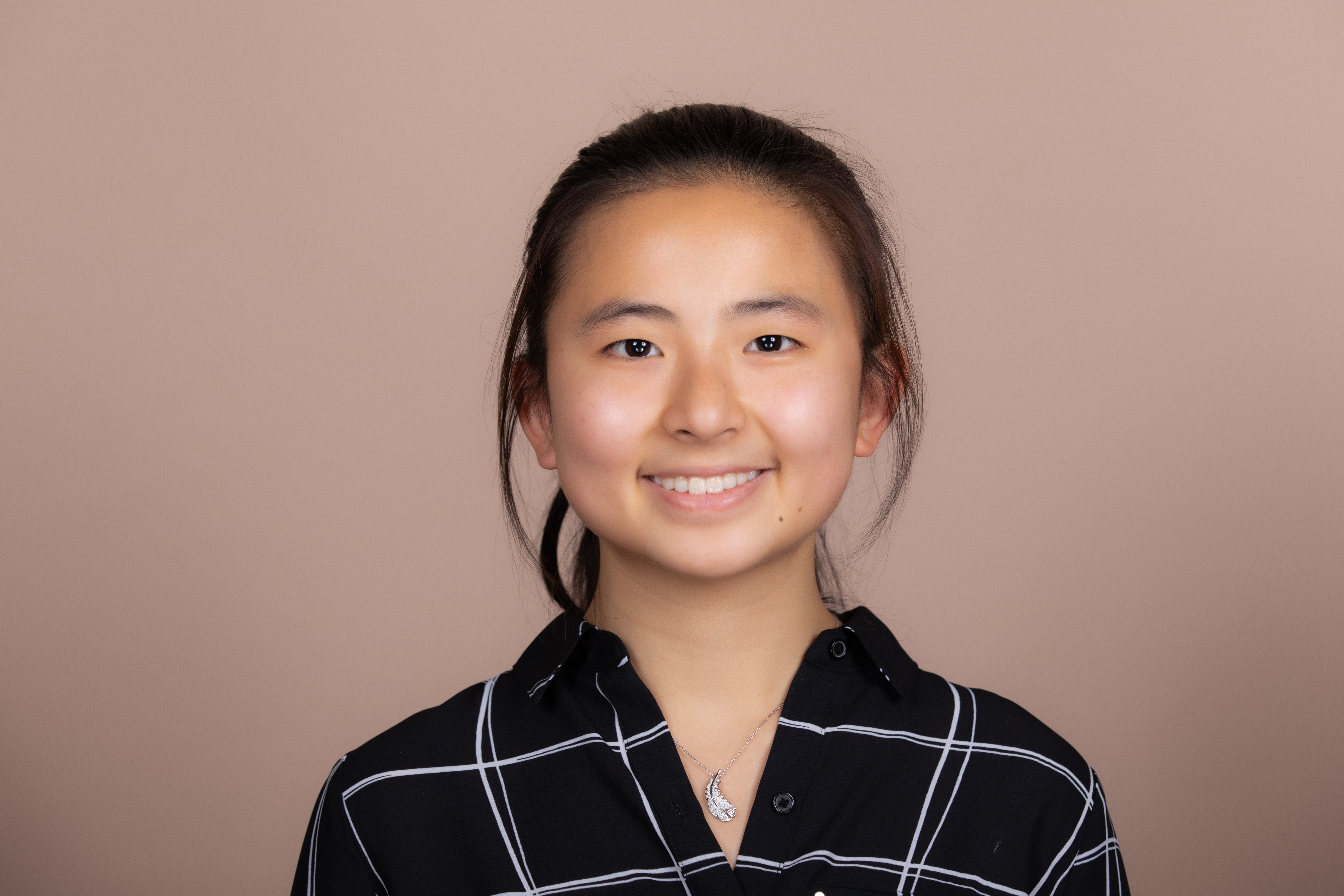
Education: B.S. Mechanical Engineering (2021), Minor: Product Design
Where are you from? Middletown, NY
What is your favorite part about being a Lehigh engineer?
My favorite part about being a Lehigh engineer is gaining the opportunity to use my creative engineering mindset to solve pressing problems such as the plastic crisis in the Philippines.
How did you first get interested mechanical engineering?
I got interested in mechanical engineering after taking my first engineering class in 7th grade. I was amazed to see myself apply the knowledge that I had gained from my science and math classes in real-life problems. I enjoyed designing a maglev on AutoDesk Inventor and creating a prototype of it using foam. At the end of the semester, everyone had so much fun racing their maglevs on a mini magnetic track.
What else are you involved with at Lehigh outside of course work?
Outside of course work, I am an executive board member of two clubs: Green Action and Aikido Club. In Green Action, I promote awareness of human activities or political policies that harm the environment and teach ways to be environmentally sustainable to the student body. In the Aikido club I practice defense martial art to develop the capability in protecting myself and others from physical harm. I am also currently working as the product designer and mechanical engineer on a project known as PlasTech Ventures through the Global Social Impact Fellowship. The project focuses on combating the plastic waste crisis in the Philippines by repurposing post-consumer plastic waste into bricks to be used for construction purposes.
Tell us about any teachers or mentors who have inspired you to get where you are today.
There have been three professors at Lehigh who have inspired me to get to where I am today: Professor Hannah Dailey, Professor Christina Haden, and Professor Alexandra Schmidt-Ullrich. They were all wonderful professors who have encouraged me to pursue my interests and challenged me to view and develop solutions to problems outside of my “student” bubble. They made me acknowledge my self-worth and capabilities in achieving anything I set my mind to in a world where female engineers are pressured in a male dominant field.
What are your plans for after graduation?
After graduation, I am looking to pursue an opportunity within the industry to gain experience in design and mechanical engineering to one day redesign the way people live to be more environmentally friendly.
What does Women’s History Month mean to you?
Women’s history month is a moment in time for people to recognize how far women have come in breaking societal barriers through their accomplishments that have benefited society. Women’s history month also serves as a reminder that there is still a long way to go until all gender barriers are broken, but we are capable of it and must step up to the challenges that come our way.
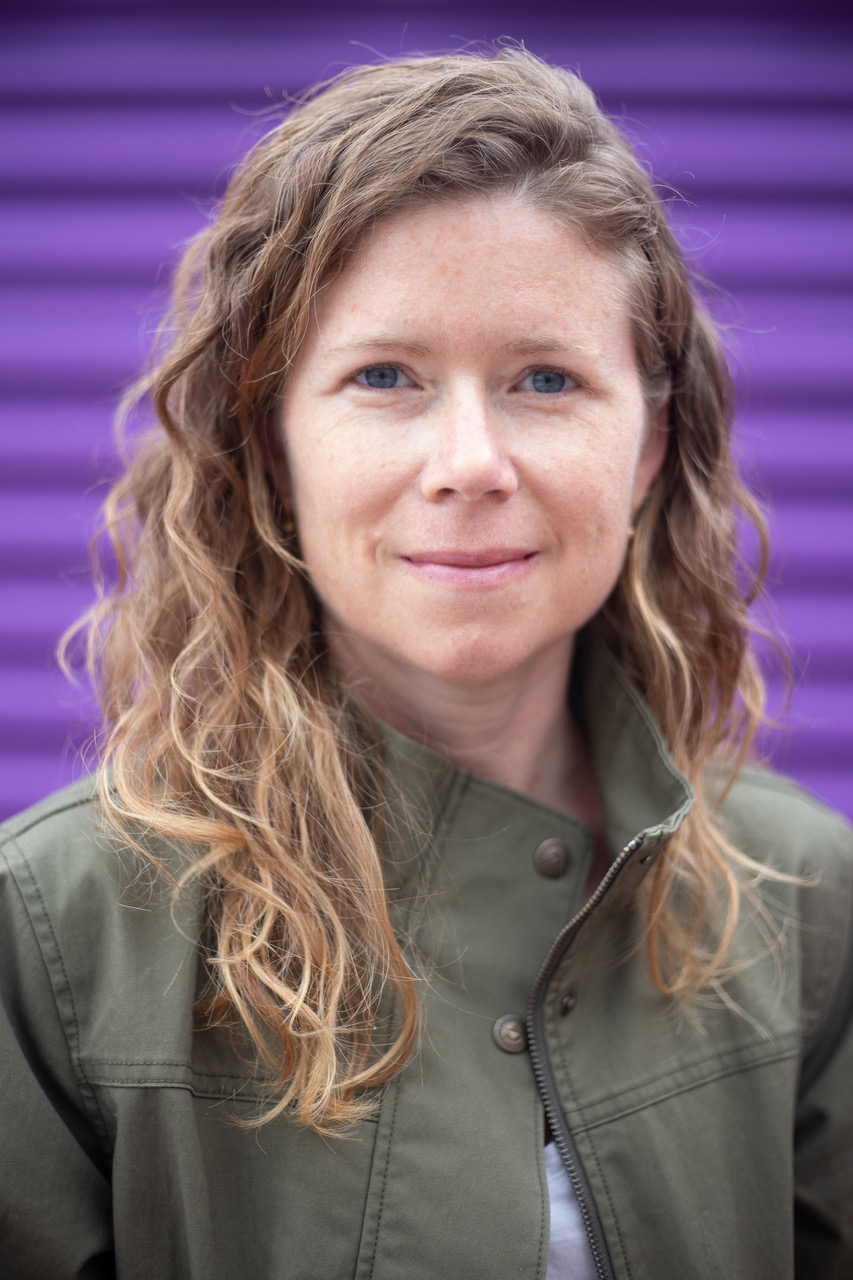 Name: Jesse Clarke
Name: Jesse Clarke
Education: Lehigh University, BS - Mechanical Engineering, ‘02
Purdue University, MS – Engineering, ‘09
Where are you from, and where do you currently reside?
Born and raised in Southwest Florida then took a meandering path through the Northeast, Midwest, and around the world before landing where I currently reside in Los Angeles.
What is your current professional position?
I am the Pilots Manager at the Los Angeles Cleantech Incubator (LACI). LACI is a nonprofit incubator focused on clean energy, zero emissions transportation, and sustainable cities (circular economy). The organization utilizes an integrated approach to create an inclusive green economy by creating new companies, de-risking the go-to-market process, and helping companies deliver market ready cleantech solutions and jobs in Southern California and beyond.
As Pilots Manager, I work on the full lifecycle of cleantech pilots from ideation to launch focusing on deployments with and within communities who are disproportionately impacted by climate change yet often overlooked by technical innovation and traditional startup culture. Lessons from the pilots are shared with key stakeholders (corporate, government, community, and startups) to inform new technology, business models, and policy recommendations.
How did you first get interested mechanical engineering?
I attribute my pursuit of Mechanical Engineering to helping my dad work on cars as a kid. Our weekend projects always ended with greasy hands and despite only sometimes fixing the issue, it sparked an interest in how things moved. Combined with my love of math, Mechanical Engineering became the natural fit. I tell people that I have a degree in problem solving because ME is a great foundation for anything you want to do.
Tell us about your experiences as a STEM professional. What accomplishment(s) are you most proud of and what do you hope to accomplish in the future?
It’s hard to pick something I am most proud of since I have had the good fortune of being able to follow my various passions. Starting off as an Automotive Engineer, I had my dream job driving vehicles to their limits for handling development including on the racetrack for C6 Corvette ZR1 tire development. Through non-profit and startup work, I traveled to Africa and India for strategy meetings with other startups bringing affordable, reliable, renewable energy to the almost 1 billion without access. My current role ties all my previous experiences together blending business model development and community outreach to launch first-in-the-nation pilot projects. A common theme though through all my STEM experiences is being a female minority in male dominated fields, so the legacy I aim to leave is to have played a large part in ushering in the world’s transition to clean energy and transportation while also leveling the playing field to create an inclusive industry.
What does Women’s History Month mean to you?
To be honest, I have mixed emotions about assigning one month to focus on any specific group. The work needed to heal the inequities and injustices of the past needs to be done every day until everyone has the same opportunities. That said, it is important to celebrate the progress we’ve made and the more the spotlight is put on women in STEM the more it can help build identity and a sense of belonging for girls. So, for HERstory month I take advantage of the spotlight to learn and share about the unrecognized women who were the rebels, who broke through barriers and changed the world no matter the consequences.
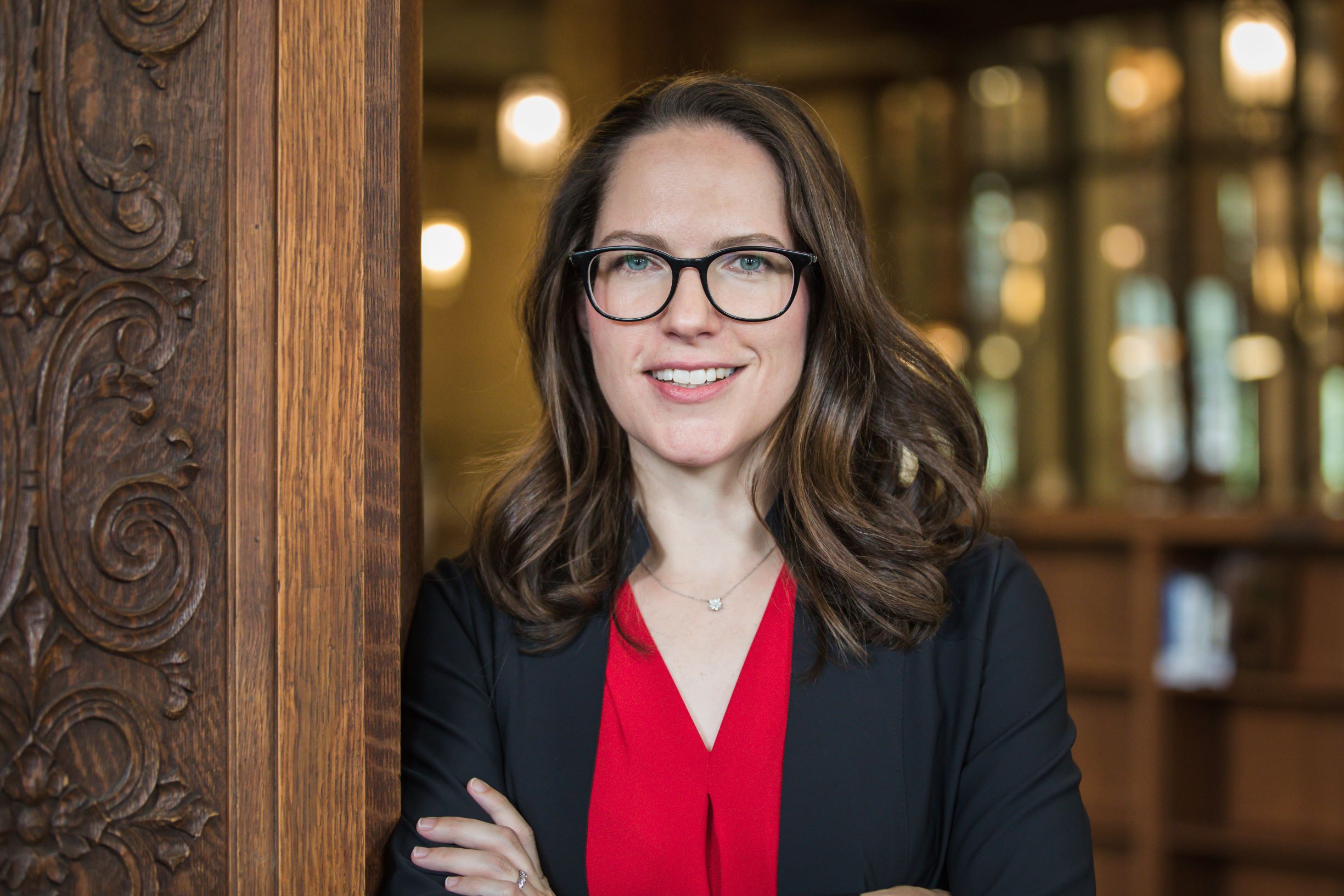 Name: Hannah Dailey, PhD
Name: Hannah Dailey, PhD
Education: B.S. Mechanical Engineering, Lehigh University (2002)
M.S. Mechanical Engineering, Lehigh University (2006)
Ph.D. Mechanical Engineering, Lehigh University (2009)
Where are you from, and where do you currently reside?
I grew up in Naples, FL and currently live in Central New Jersey, which is officially a place, no matter what you might hear from people who live in North Jersey or South Jersey!
What is your current professional position?
I am an Assistant Professor of Mechanical Engineering at Lehigh and I also serve as Co-Founder and Chief Scientific Officer of a startup orthopedic device company called OrthoXel, based in Cork, Ireland.
What are some courses you teach at Lehigh?
At the undergraduate level, I teach Thermodynamics I and Heat Transfer, and also a fun elective for seniors that was inspired by the sci-fi novel, The Martian by Andy Weir. At the graduate level, I teach a course in numerical methods where, among other things, I have my students use MATLAB to solve puzzles like Sudoku and make computer-generated fractal art.
Tell us about your research interests.
I study bone fractures and how they heal. Bones are amazing because they heal in response to mechanical loads. My lab collaborates with orthopedic surgeons and veterinary surgeons to develop imaging-based tests for the load-bearing capacity of bones while they are healing.
How did you first get interested mechanical engineering?
When I was a kid, I loved playing with LEGO Technic sets and reading The Way Things Work by David Macaulay. Gear trains were always my favorite things to figure out, so it was no surprise to anybody when I decided on Mechanical Engineering for my major.
Tell us about your experiences as a STEM professional. What accomplishment(s) are you most proud of and what do you hope to accomplish in the future?
For the last decade, I’ve been working in orthopedics, both as an entrepreneur and a researcher. I love this field because we get to work hand-in-hand with orthopedic surgeons on an important shared mission – restoring freedom of mobility to people after they suffer traumatic accidents. My proudest achievement so far has been the opportunity to take a technology that I helped design all the way from a sketch on a whiteboard to successful human use. There is so much room for innovation in orthopedics, from basic science discoveries all the way to commercialization of new implants and surgical robotics. Across academia and industry, a lot of this work is really driven by mechanical engineers and I’m excited to keep being a part of that for years to come.
What advice would you give your younger self?
Don’t be afraid to pursue opportunities outside your comfort zone. Take every opportunity to learn new things, even if you aren’t sure how you’ll pull it off. You will amaze yourself with the things you will achieve over the course of your career that you can’t even imagine right now.
What does Women’s History Month mean to you?
I have always been inspired by the women in my family who were clearly scientifically and mechanically inclined, but they didn’t pursue STEM careers because society closed a lot of doors to women at the time. For example, my mom is a talented professional painter who studied fine arts in college, but when my siblings and I were young, we did a lot more science projects with her than we did art. As a girl, she got pushed out of science and math by a narrow-minded guidance counselor in middle school, but I think she would have made an amazing engineer. As a parent, she modeled creative curiosity and she raised me to consider any career as being within my reach. That legacy is what Women’s History Month means to me – the idea that we, as women, can actively help create the world we want the next generation to inherit. I hope I’m doing that a little bit for the young women who take my classes and definitely for my two daughters, who are 9 and 12 and are just starting to envision how they will one day impact the world around them.
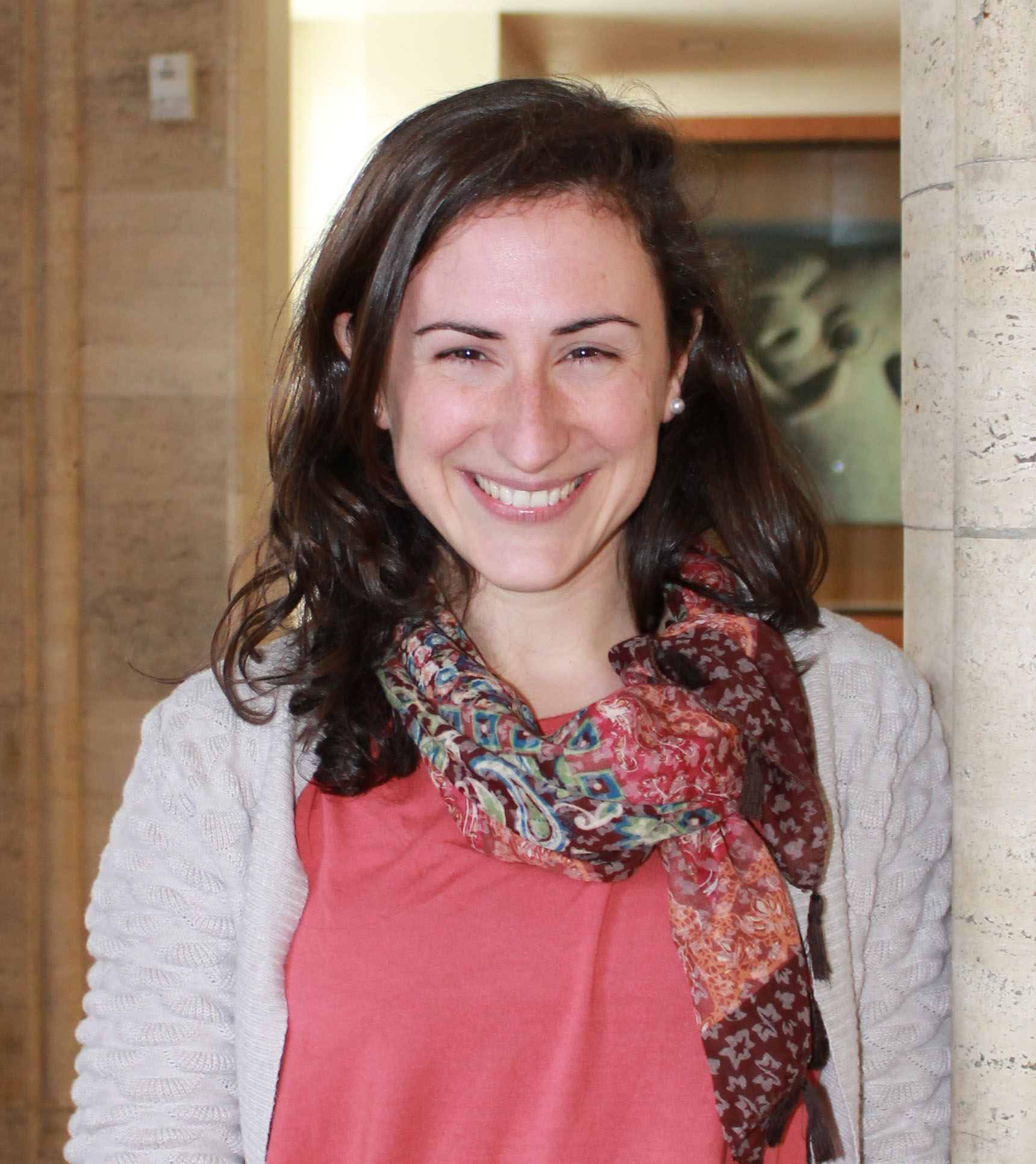 Name: Christina Viau Haden
Name: Christina Viau Haden
Education: PhD ‘12 from the University of Virginia
Where are you from, and where do you currently reside?
I was born in the United States but raised in Quebec, Canada for most of my childhood until I came back to the U.S. for college. I currently reside in Bethlehem, PA.
What is your current professional position?
I’m a Professor of Practice in the Mechanical Engineering and Mechanics Department.
What are some courses you teach at Lehigh?
I teach Fundamentals of Engineering Mechanics (MECH003), Thermodynamics (ME104) and I advise Capstone teams. I’m also really excited to be developing a co-taught course with a colleague in the college of arts and science about Leonardo da Vinci, the engineer and the artist. The details are still being worked out, but it should be a really fun course with a lot of hands-on experiences recreating some of da Vinci’s inventions!
Tell us about your research interests.
I’ve been working on the material property predictions of 3D printed metals since coming to Lehigh. We built an in-house 3D printer using a MIG welder with the help of some very talented students and instrumented it with several sensors to detect in situ deposition conditions. It’s very interesting to see how metals behave after being printed, and certainly very different from conventional metal casting. There’s a lot of room for discovery in this field!
How did you first get interested in mechanical engineering?
I remember opening up an old phone and soldering a broken wire to fix it when I was 8 years old. I think that was a turning point for me: I started opening up old appliances and devices to understand how they worked. I just wanted to understand everything. I also remember being really excited about the power of creating things. The rest of my push into engineering was thanks to some amazing teachers along the way that believed in me.
Tell us about your experiences as a STEM professional. What accomplishment(s) are you most proud of and what do you hope to accomplish in the future?
I really love my job. I love teaching, interacting with students, and having the freedom to explore scientific questions. I think my greatest honor as a faculty at Lehigh has been to serve as an advisor to SWE, WiSE and a preLUsion for incoming women engineers. To be at the intersection of all three of those groups has given me perspective about the experiences women have in STEM. And it has made me a fierce advocate for the young women coming through our programs at Lehigh. I established a women’s mentoring group two years ago within MEM, and it has been one of my greatest joys. I get to spend time with a small group of students, both undergraduate and graduate, on a regular basis, and nothing makes me happier than to share in their successes and support them through whatever challenges come their way.
What advice would you give your younger self?
I would say: you belong here [in STEM]. Don’t doubt yourself so much. Even though you don’t see many other women around you, you can do this, too. And some day, you will be able to show other women they can, too.
What does Women’s History Month mean to you?
In French, we call “International Women’s Day” the “Journee Internationale des Droits des Femmes” which roughly translates to “Women’s Rights Day”. I like that this day (and the whole month) remind us of the journey so many undertook before us to secure the rights which we enjoy today. It’s a great reminder for me to be thankful; for both the women who came before us and their achievements, while also looking to the future with an eye for what still needs to be done.
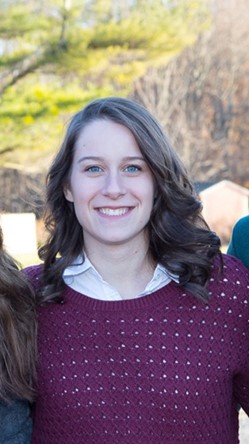 Name: Grace Heidelberger
Name: Grace Heidelberger
Education: B.S. Mechanical Engineering, Lehigh University, Class of 2017
Where are you from, and where do you currently reside?
I am from Lincroft, New Jersey and I currently reside in Easton, Pennsylvania.
What is your current professional position?
I am currently working as a Business Process & Systems Program Lead/Packaging Engineer with Mars Wrigley.
How did you first get interested in mechanical engineering?
My mom is a Chemical Engineer so growing up she always encouraged STEM activities and tried to get myself and my siblings interested in this field. Additionally, when I was in high school a unique opportunity was presented to me when I was encouraged to apply to the Governor’s School of Engineering and Technology. This was a summer program I attended between my junior and senior years where I spent a few months working on engineering projects and attending lectures in various subjects. This experience helped me put my engineering curiosities into practice and I realized that I loved all of the projects and critical thinking aspects of the program. From there I decided I definitely wanted to major in engineering. I looked up opportunities in each of the engineering disciplines and decided that mechanical engineering sounded the most interesting to me. I am so glad I made that decision.
Tell us about your experiences as a STEM professional. What accomplishment(s) are you most proud of and what do you hope to accomplish in the future?
One of my personal favorite aspects of being a STEM professional, is that I have the opportunity to solve many different types of problems. For example, how to develop a pilot scale manufacturing process and scale it up, how to make a package cheaper without changing the look or feel to the consumer, or what is the most efficient way to analyze a set of data and draw conclusions from it.
About a year ago, I was able to take a Six Sigma training course and I completed a project to earn my green belt. This training and certification focused on improving manufacturing capabilities through the use of statistical tools and analysis. This accomplishment of attaining my Six Sigma green belt certification has qualified me for many more professional opportunities. I have also traveled to Denmark as an ambassador for my company to develop lesson plans for science-based environmental education. In the future, I hope to continue working on developing and improving manufacturing processes to make them more efficient and less wasteful.
What advice would you give your younger self?
If I could go back and give my younger self any advice, I would remind myself of the importance of continued learning and growth. Curiosity and learning go a very long way towards bettering yourself both personally and professionally. I would also advise myself to always make sure I have a mentor. There is always someone who has gone through what you are going through or is where you want to be and they are usually more than willing to help give you advice.
What does Women’s History Month mean to you?
Women’s History Month is a great opportunity to celebrate all of the amazing accomplishments of women before us and serves as a reminder of everything they accomplished to give me the opportunity to be where I am today. There are so many strong female leaders and role models around us. This is a month to let them know how they inspire you.
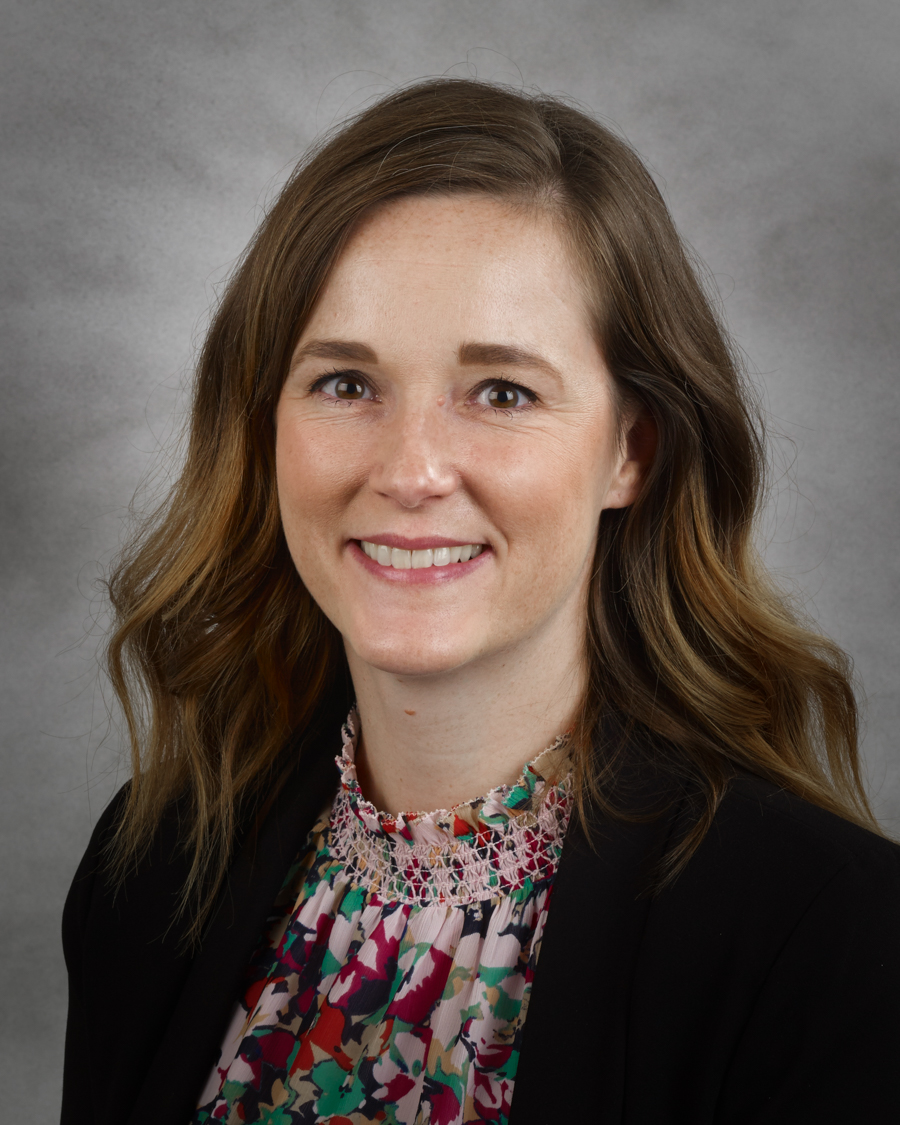 Name: Amanda (Warrick) Kirk
Name: Amanda (Warrick) Kirk
Education: Mechanical Engineering, B.S. 2005, Lehigh University
Mechanical Engineering, M.S. 2007, Lehigh University
Where are you from, and where do you currently reside?
Wayne, PA, currently reside in Newtown Square, PA
What is your current professional position?
Group Engineering Manager, Trauma Product Development – Globus Medical
How did you first get interested in mechanical engineering?
My high school art teacher recommended an engineering path for me because product development is a way to marry art and science/math.
Tell us about your experiences as a STEM professional. What accomplishment(s) are you most proud of and what do you hope to accomplish in the future?
I’ve worked in Product Development for Joint Replacements and now Trauma devices for my entire 14-year career. I work with surgeons to design implants and surgical instrumentation that nail, screw and plate patients’ bones back together. With each product that we develop, improvements are made to enhance patients’ lives. There is nothing more rewarding than being in the operating room and watching a surgeon implant your device to help a patient in need.
Even though I work in the medical device industry, a mechanical engineering degree has been extremely beneficial. On a daily basis we deal with strength of materials, design for manufacturability, and mechanical testing among many other topics. Now on the management side, I use my experience to guide my team to launch the best products possible. I take a lot of pride in the success of my team and watching each person grow in their own careers.
What advice would you give your younger self?
In work and even your personal life, raise your hand and volunteer for as much as you can. You never know what experience may lead to your next big passion or career opportunity.
What does Women’s History Month mean to you?
I am proud to be a woman, especially working in male dominated industries like engineering and orthopedics. It is important to recognize the women who paved the path before us. Just in the last 14 years, I have perceived an increase in women in engineering and executive positions. This is a great trend to see.
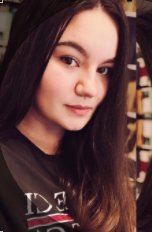 Name: Sena Kizildemir
Name: Sena Kizildemir
Education:
- BS in Civil Engineering (2016), Isik University, Istanbul, Turkey
- MS in Civil Engineering (2018), Lehigh University
- PhD Candidate in Mechanical Engineering, Lehigh University
Where are you from?
I am from Istanbul, Turkey.
What is your favorite part about being a Lehigh engineer?
My favorite part of being a Lehigh engineer is simply being challenged on a daily basis. Even though that might sound terrible, this is one kind of thing that you would want to have in your life as an engineer. Lehigh teaches me how to embrace the struggles, learn from them and grow. So in summary, my favorite part of being a Lehigh engineer is knowing how to overcome challenges and being smarter and confident in my abilities to make a great impact in the field.
How did you first get interested in mechanical engineering?
I was actually studying Civil Engineering. However, my research was being conducted by the Mechanical department. In this way I got the chance to know mechanical engineering more and more and eventually I switched my department to mechanical engineering for my PhD.
What else are you involved with at Lehigh outside of course work?
Lehigh has a great Office of International Students and Scholars (OISS). I mostly got involved in the activities that are arranged by the OISS. There is also a Turkish Student Club at Lehigh and we’ve been trying our best to make special events. However due to the global pandemic, the activities overall at Lehigh get pretty limited.
Tell us about any teachers or mentors who have inspired you to get where you are today.
Prof. Nied, who is both my research and academic advisor, is a great professor and mentor. He is always there if I get stuck with anything. He always gives me the inspiration and direction to move forward. I would also need to say that Prof. Harlow plays an important role in my life. I’ve been working as his TA for 2 years now. He is the person that guides me with his sincere advice. And most importantly he is giving me the chance to explore my skills for my future career, both academic and professional.
What are your plans for after graduation?
I would like to stay in academia and be a professor eventually. However I would like to work in the field as well. I might even end up doing both at the end of my career exploration.
What does Women’s History Month mean to you?
I see the Women’s History Month is a chance for all of us to acknowledge women’s contributions to every aspect of life. We need to dig down deep to explore many of the vital roles that women have played throughout history. As a woman in engineering, I believe we all have the power to influence, to motivate and to inspire the world. Women’s History Month reminds me of that power we have.
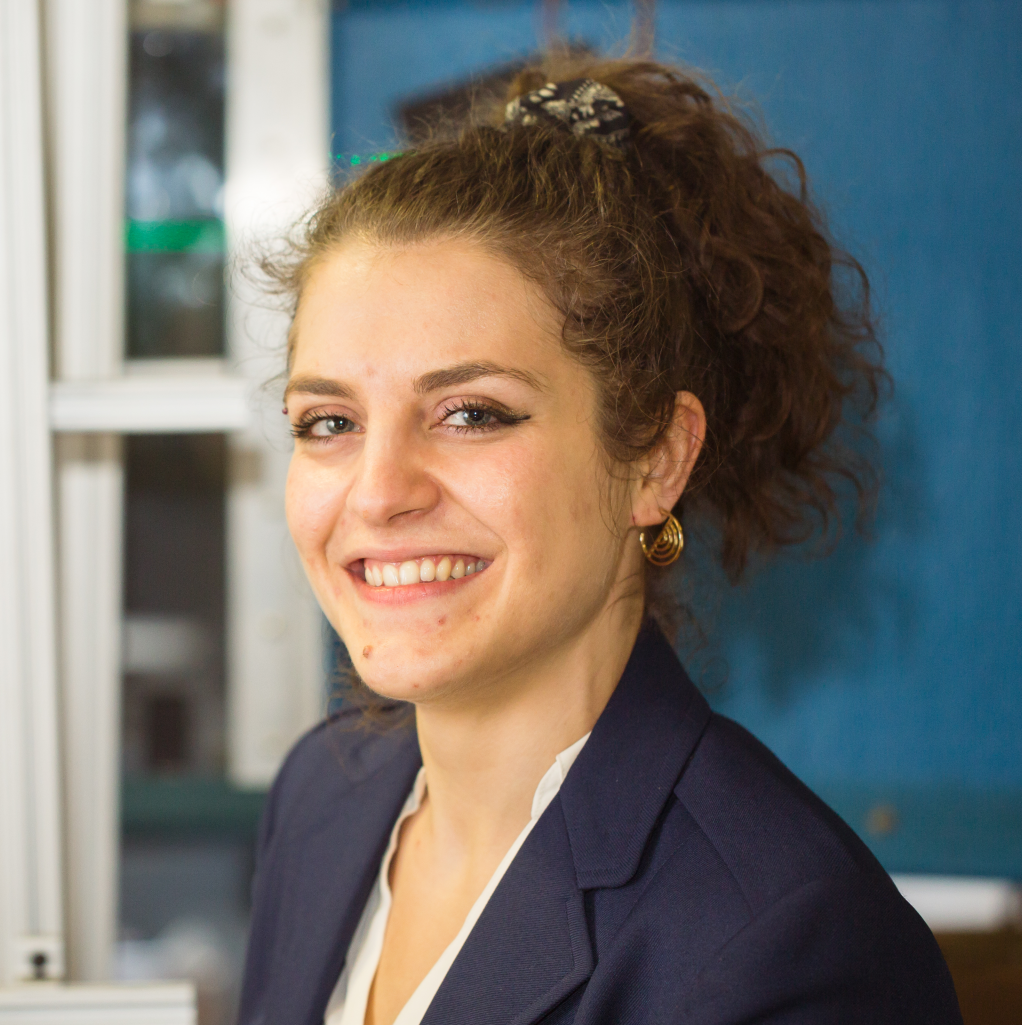 Name: Melike Kurt
Name: Melike Kurt
Education: Doctor of Philosophy, Mechanical Engineering (2020) Lehigh University, Bethlehem, PA
Master of Science, Mechanical Engineering (2014) Bogazici University, Istanbul, Turkey
Bachelor of Science, Mechanical Engineering (2011) Istanbul Technical University, Istanbul, Turkey
Where are you from, and where do you currently reside?
I am from Turkey. I completed my BSc and MSc degrees there, and then moved to the United States for my PhD studies. Currently, I live in Southampton, United Kingdom.
What is your current professional position?
I am a postdoctoral researcher in Aerodynamics and Flight Mechanics Group at the University of Southampton.
How did you first get interested in mechanical engineering?
The system in Turkey forces you to do a soul search in your last year of high school. Based on the score acquired from the National Exam, students fill out a list of schools and programs, and the system allocates you to one from that list. I knew that I wanted to do something that marries physics and math. I was a Formula 1 fan (I still am!) and interested in designing dynamic systems. After a long elimination process, I decided that mechanical engineering would fit the criteria in my check list the most. Looking back, I am glad that I have made this decision and received a training in a field that spans so many different subjects and has so much to offer!
Tell us about your experiences as a STEM professional. What accomplishment(s) are you most proud of and what do you hope to accomplish in the future?
Starting from my undergrad years, I always sought out different subjects that would interest and excite me in the vast and diverse field of mechanical engineering. I was fascinated by anything and everything fluids from the first time that I was introduced to the subject, in an undergraduate level fluid mechanics course. As part of my final year project, I studied plastics flow in an extrusion process and participated in the design of a commercial extruder that was later manufactured as a prototype. This brief introduction to academic research encouraged me to continue my education and apply for a masters program. During my masters, I switched my focus to thermofluids and worked in an experimental project on nanofluids preparation, thermal and rheological characterization. This experience made me see how much joy that hands-on experience and experimental work bring me and encouraged me to specialize and learn more. After my masters, I knew that I wanted to go back to the subject that excites me the most, fluid mechanics! To do so, I joined the Unsteady Flow Interactions Lab under the supervision of Prof Keith Moored. This time, my focus was unsteady bioinspired flows, such as the ones that occur around swimming fish or flying birds. Specifically, I studied collective flow interactions and propulsive performance of flapping hydrofoils, as a simple model of collectives in nature, such as fish schools and bird flocks. Yes, it was a highly interdisciplinary subject feeding from biology, physics, and engineering. And because of this, now, I have a very different appreciation for interdisciplinary work and nature. Trying to understand nature and how these animals interact with fluids through experiments and thinking about how we can use this knowledge in engineering applications was truly an exhilarating and humbling experience that exposed me to a variety of brilliant research and ideas. I am proud of my contributions to the field and the work that I have done during my PhD and truly grateful for the opportunities that I was given to interact and work with academic scholars from different walks of fluids. Currently, as a postdoctoral researcher, I am working on different types of problems on flapping foil systems, as well as turbulent flow over compliant surfaces where the one deforms under and modifies the surrounding flow, offering certain passive flow control opportunities. This journey and my training have been all to gain the experience and skills to become an independent thinker and researcher that I aspire to be, with the end goal to become an academic, leading my own research team. But this does not mean growing and learning have an end. Every new problem gives me more questions to solve in return. If and when I have the opportunity, I would very much like to share this love of seeking questions and solving problems, collaborate with a diverse network of people, and inspire more people, especially women, to join my field and support them in their own academic journey.
What advice would you give to your younger self?
Please be gentle to yourself and listen. Constantly overcriticizing and feeling less than, is common amongst young professionals. I, myself, am a victim of this thinking. Learning to navigate around these feelings, reassuring yourself and knowing your self-worth through inner dialogues and self-reflection are valuable skill sets that will serve you well, no matter where your journey takes you.
What does Women’s History Month mean to you?
As a history buff, since the elementary school, I have always questioned how and why women are this absent from history books. All the countries seemed to be founded and conquered by men, revolutions have been started or all the inventions have been made by men only. I remember that I had told this to my father, I must have been 8 or 9 years old, and my father did not have an answer for me. He simply hugged me instead. Next day, he came home with a book, the biography of Marie Skłodowska Curie. Reading that book, reading about her work affected and inspired me deeply as a young girl, and made me realize that women, too, can be pioneers in their own field. From my own experience, I know how important it is to recognize the contributions of women from all walks of life to the society, who challenged the status-quo and succeeded despite the odds. Women’s History Month is a good reminder that, as women, we need to keep challenging the norms so that the next generations can have more female representation and role models, and more stories of successful women that they can aspire to.
 Name: Shira Morosohk
Name: Shira Morosohk
Education: BS in Mechanical Engineering (minor in Applied Mathematics), May 2018
PhD in Mechanical Engineering, expected May 2023
Where are you from?
St. Louis, MO
What is your favorite part about being a Lehigh engineer?
I love that Lehigh fosters more cooperation than competition between engineering students. In the real world, engineering accomplishments are not achieved by the single student with the highest grade, but by collaborative teams with different strengths.
How did you first get interested in mechanical engineering?
I knew that I wanted to eventually work on renewable energy technologies in some way, and majoring in mechanical engineering seemed like the best way to prepare myself for that career path.
What else are you involved with at Lehigh outside of course work?
As an undergrad, I was involved in Greek life and in Hillel. As a graduate student, I tutor an undergrad student in the department.
What are your plans for after graduation?
I plan to continue working on nuclear fusion research, and hopefully contribute to the development of a clean, sustainable energy technology.
What does Women’s History Month mean to you?
I may be a woman working in a highly male-dominated field, but I have never truly had to fight for the right to receive the education I am getting or to do the work I am doing. I owe this to the women who came before me and fought to be included in the STEM world. Now it is my turn to continue working to improve the experiences of women and other gender minorities in these fields.
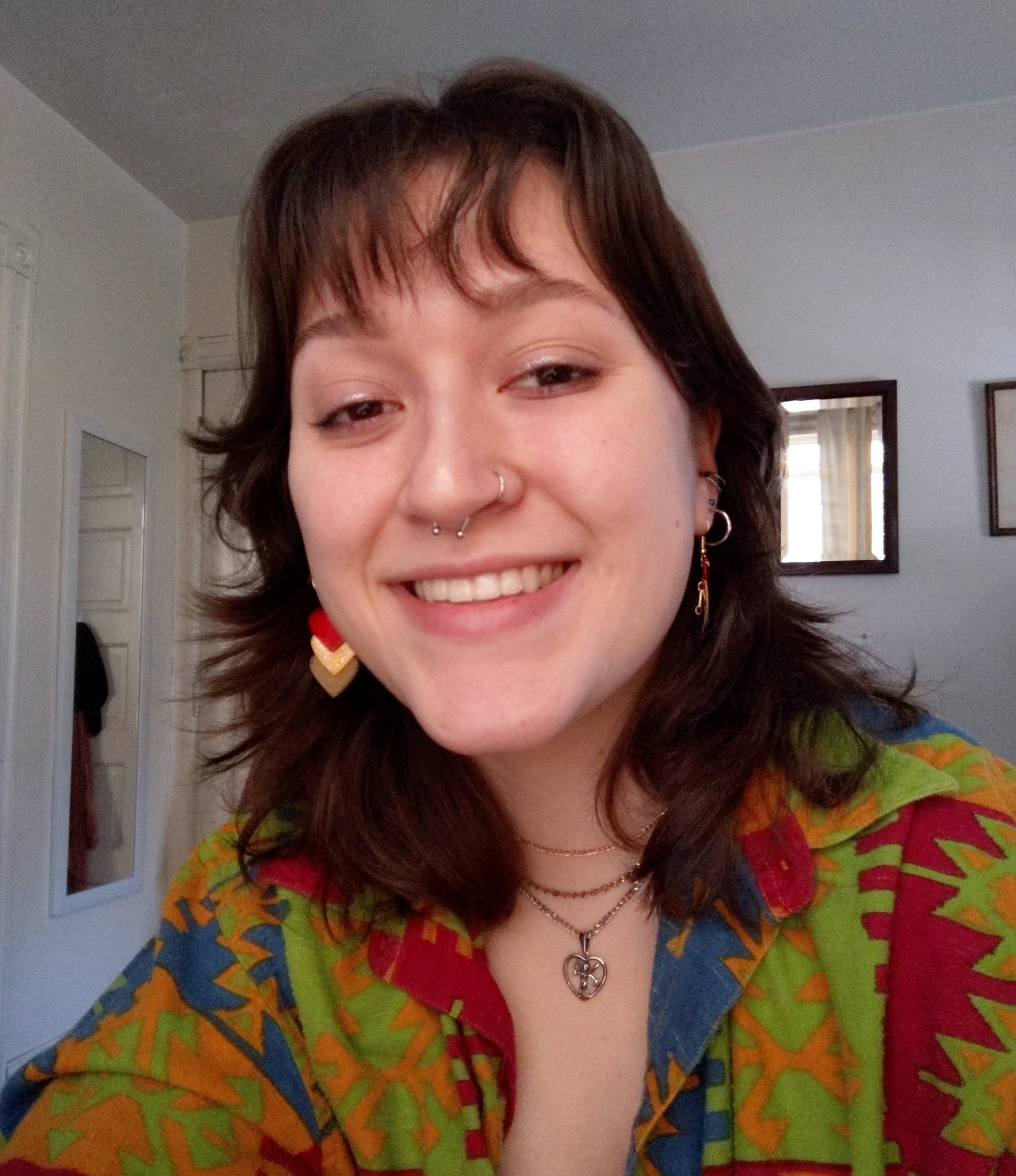 Name: Michelle Rodriguez
Name: Michelle Rodriguez
Education: B.S. Mechanical Engineering, May 2021
Where are you from? Doylestown, Pennsylvania
What is your favorite part about being a Lehigh engineer?
My favorite part of being a Lehigh engineer is moving through the years with the same small group of people. My class of Lehigh engineers can share similar positive and negative experiences with courses, professors, and Lehigh life in general.
How did you first get interested in mechanical engineering?
I first got interested in engineering by attending camps and events at local universities put on by their SWE groups. I was interested in everything introduced to me, and mechanical engineering was the field that offered the widest range of learning opportunities and career paths.
What else are you involved with at Lehigh outside of course work?
I am on the executive boards for Music Box and Lehigh’s SWE chapter. I also work at Wilbur Powerhouse and I try to volunteer in the Bethlehem community when I can.
Tell us about any teachers or mentors who have inspired you to get where you are today.
The most important teacher I’ve had was Mr. Czekaj for Tech Ed in high school. He really believed in me at a critical time in my education and never made me feel like I couldn’t be an engineer, even when I felt out of place being the only girl in a couple of his classes. And of course, I have to thank the Lehigh professors that put in the extra time to make sure I was doing well personally, professionally, and academically. These professors were mostly other women, but I don’t want to count out the few male professors that helped me outside of the context of class too.
What are your plans for after graduation?
Nothing is secured yet, lots of interviews coming up though! I hope to have some time to travel after graduation before I start working.
What does Women’s History Month mean to you?
Women’s History Month is an inspirational time to learn about all the women before me who have contributed to society through technology, advocacy, education, etc. when they haven’t been specifically appreciated through literature in academic spaces. I feel so refreshed reading about not only the contributions of these women, but their lives as well during this month of heightened awareness for the important women in history.
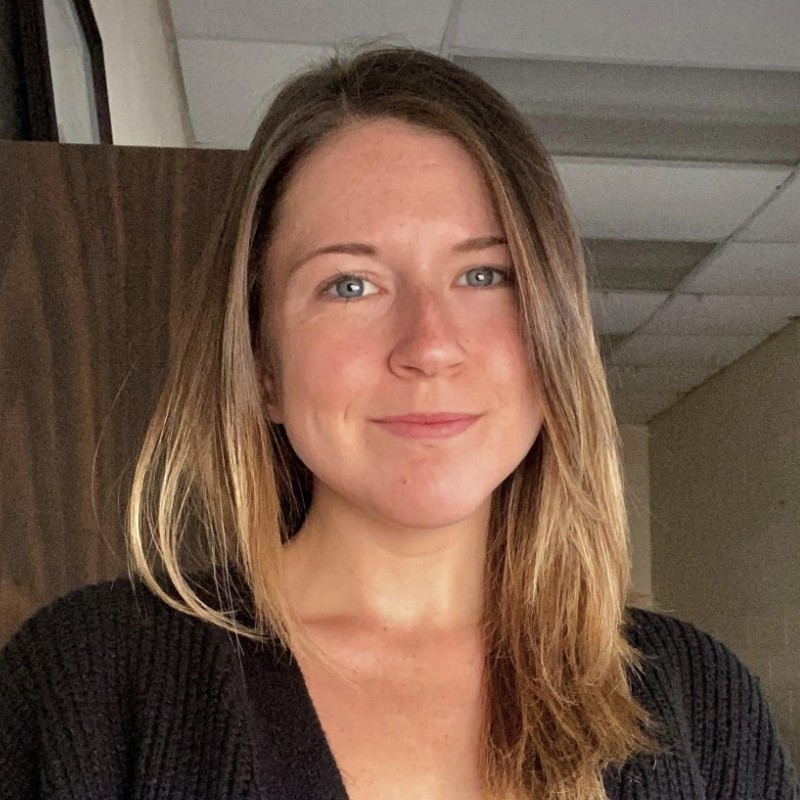 Name: Emily Sechrist
Name: Emily Sechrist
Education: B.S. Mechanical Engineering – Lehigh University – 2016
Where are you from, and where do you currently reside?
I am originally from the Philadelphia, Pennsylvania area. I spent 3 years living and working in New York City and am now living in Davis, California.
What is your current professional position?
I am currently a graduate student in the Biological Systems Engineering program at UC Davis. I am interested in finding engineering solutions to help tackle the global issue of food waste. At the moment, I am working on a project that seeks to transform almond and walnut hulls into valuable products that will increase their economic value and reduce the environmental impact of their management.
How did you first get interested mechanical engineering?
I chose to study mechanical engineering to learn more about renewable energy and sustainable technologies but through my studies, I learned that mechanical engineers have the unique opportunity to learn about a breadth of inventions and phenomena that govern our modern society. I not only learned why much of the world is the way it is, I also saw many opportunities for redesign and improvement. I believe all mechanical engineers, not just those in sustainability fields, have the ability to make our society more equitable and less environmentally destructive through their work.
Tell us about your experiences as a STEM professional. What accomplishment(s) are you most proud of and what do you hope to accomplish in the future?
I have worked as a commissioning engineer, an energy consultant, a program manager, and even an adjunct lecturer. In every one of those positions, I have often been one of the youngest and one of just a handful of women in the room. I am proud of myself for taking on each of these different roles and executing them to the best of my ability. My dream has always been to become an engineering professor, but I am currently reevaluating that goal and trying to decide what I want to do next. Overall, I hope that any role I take on has a positive impact on people and the planet.
What advice would you give your younger self?
You will face many instances in which you question your abilities, but you can do anything you put your mind to. Trust your intuition and never compromise on what you believe in! Don’t be afraid to ask for help or give yourself time off if that’s what you need. The weight of the world does not rest on your shoulders (my current self still needs to hear this advice all the time).
What does Women’s History Month mean to you?
Women’s history month is an amazing opportunity to celebrate and recognize women for all of the amazing things we have accomplished and all the barriers we have overcome! Visibility of women in male-dominated fields, especially STEM, helps younger women feel more confident about entering the field by showing them someone they can relate to having a successful career. I have met so many helpful, inspiring women over my career and am now a mentor to an undergraduate engineering student through the Women for Energy Efficiency Network – I celebrate these women this month and every month!
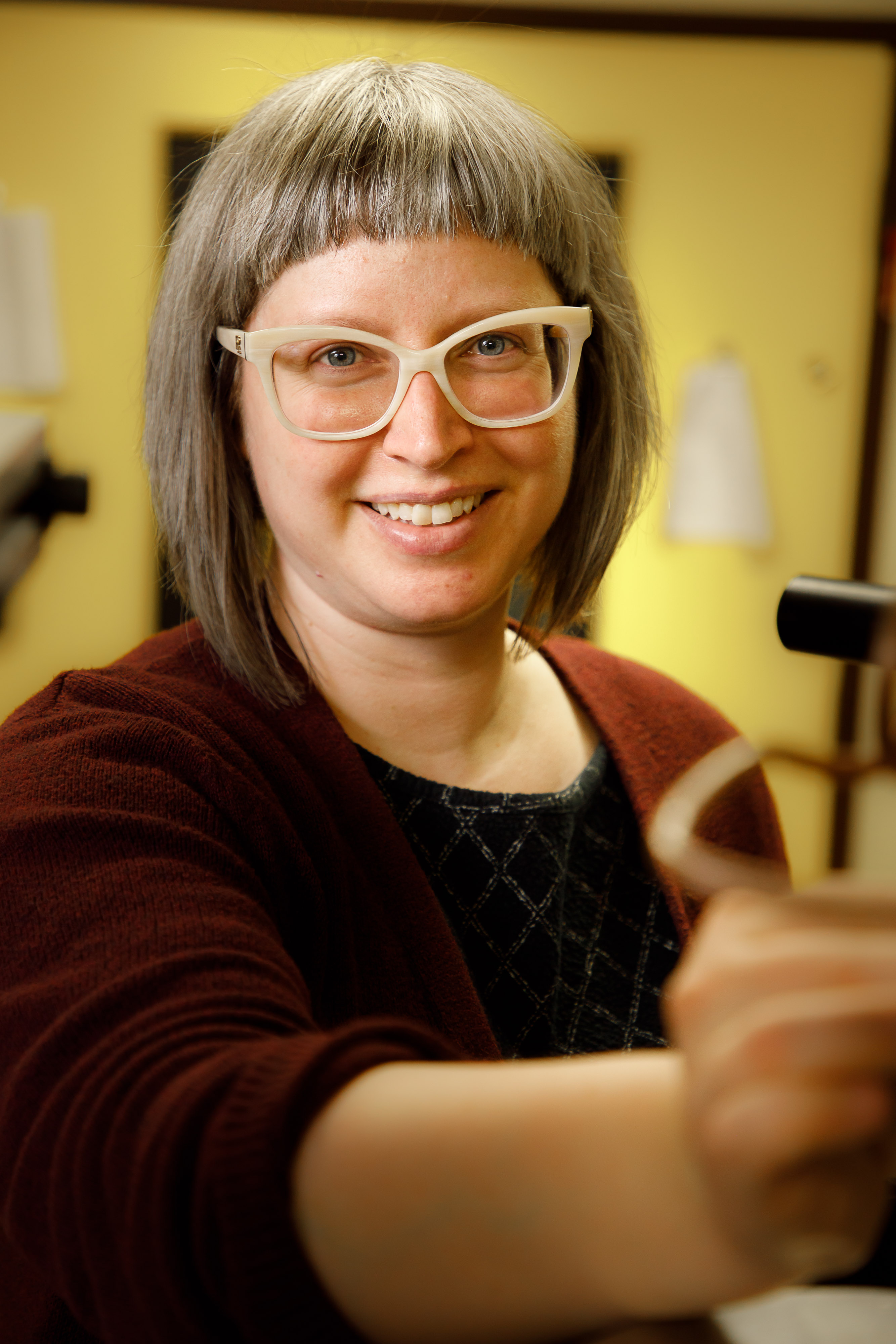 Name: Natasha Vermaak, https://engineering.lehigh.edu/faculty/natasha-vermaak
Name: Natasha Vermaak, https://engineering.lehigh.edu/faculty/natasha-vermaak
Education: PhD, University of California Santa Barbara 2010
Where are you from, and where do you currently reside?
I’m originally from Minnesota and currently live in Fountain Hill, PA walking distance to Lehigh University.
What is your current professional position?
Associate Professor of Mechanical Engineering and Mechanics at Lehigh University
What are some courses you teach at Lehigh?
Fundamentals of Engineering Mechanics (MECH003)
Thermodynamics I (ME104)
Introduction to Heat Transfer (ME321)
Inelastic Behavior of Materials (MECH432)
Tell us about your research interests.
My group uses computational and experimental techniques to address problems in thermostructural design, materials degradation, and structural durability. Some recent applications include for hypersonic vehicles and composite wear. https://engineering.lehigh.edu/faculty/natasha-vermaak
How did you first get interested in mechanical engineering?
What first got me interested was a friend who showed me an article about the specific strength of spider silk (comparable to steel) and the study of materials science. I was immediately hooked on materials science and figuring out what dictates the properties that different materials have. During my studies, mechanical engineering courses like heat transfer and continuum mechanics were some of my favorite and this influenced my decision to focus on the mechanics of materials and structural materials in general. What continues to spark my interest is that I find engineering to be a deeply creative and collaborative endeavor and the field of mechanical engineering a source of constant inspiration. As mechanical engineers we ask questions about how things work and how to make them better; how to design systems that make people healthier and safer and preserve the environment and make the world a better place.
Tell us about your experiences as a STEM professional. What accomplishment(s) are you most proud of and what do you hope to accomplish in the future?
I’m most proud of: (1) the collaborative research that I have done throughout my career so far. It has been extremely rewarding to lead and participate in team-based projects that address complex multidisciplinary challenges for the ultimate benefit of society. (2) Being part of and contributing to professional societies and organizations that deeply value and are actively working to advance diversity, equity, and inclusion (DEI) in STEM. In the future, I look forward to broader collaborations, further from my discipline, to foster innovation and convergent research. With this outlook and environment, I look forward to contributing to the training of the next-generation of STEM professionals who will continue to address DEI as integral to our pursuit of excellence in mechanical engineering research, teaching, and scholarship. You can find more about my interests and accomplishments through my website: https://engineering.lehigh.edu/faculty/natasha-vermaak
What advice would you give your younger self?
I would advise my younger self: (i) surround yourself as best as possible with people who support you and who you aspire to be like. (ii) throughout your career take time to reflect on what works best for you, in what environments, under what circumstances do you thrive. Cut out things that don’t work for you. (iii) cultivate the skill of confidently declining or saying No to things. (iv) develop a strategic plan with short-term and long-term SMART goals and regularly assess and readjust this to focus on things in my life and career that are truly important to me.
What does Women’s History Month mean to you?
To quote Vice President Kamala Harris: “Women make history every day. Some we know -- the Suffragettes, the Riveters. The stories of others -- especially women of color and LBGTQ women -- have gone untold. This Women’s History Month, we honor these women and all women.” (https://twitter.com/vp/status/1366538744254324736?s=21)
I look forward to learning more about and amplifying the voices of the women in our Lehigh University Mechanical Engineering & Mechanics community!
